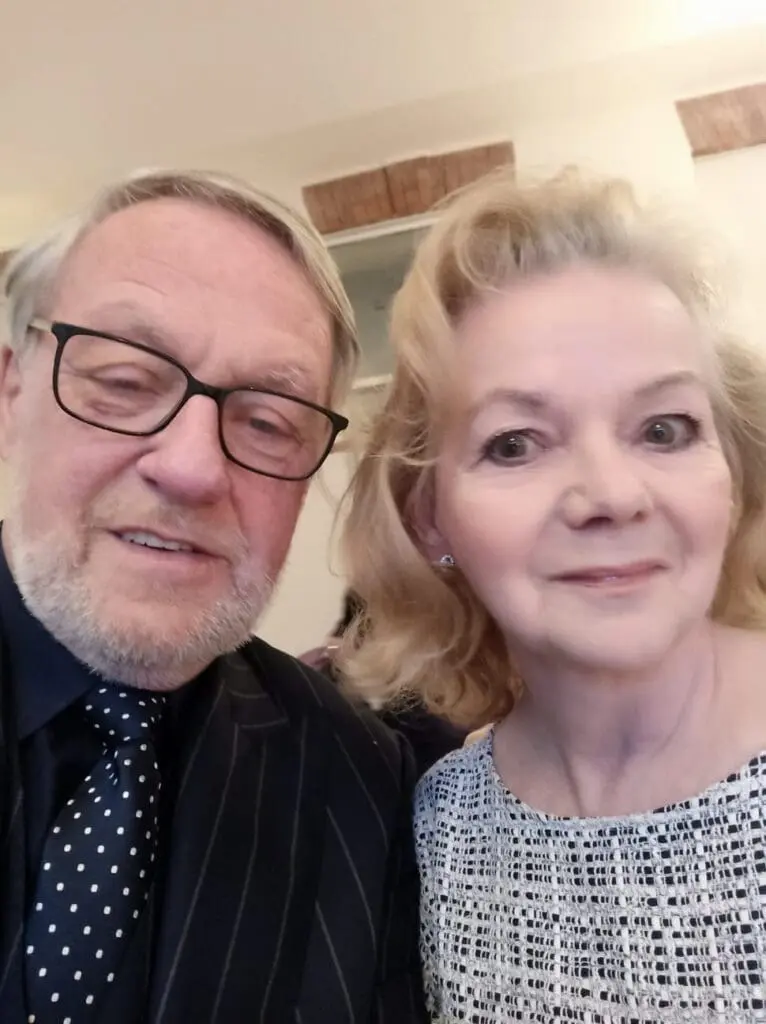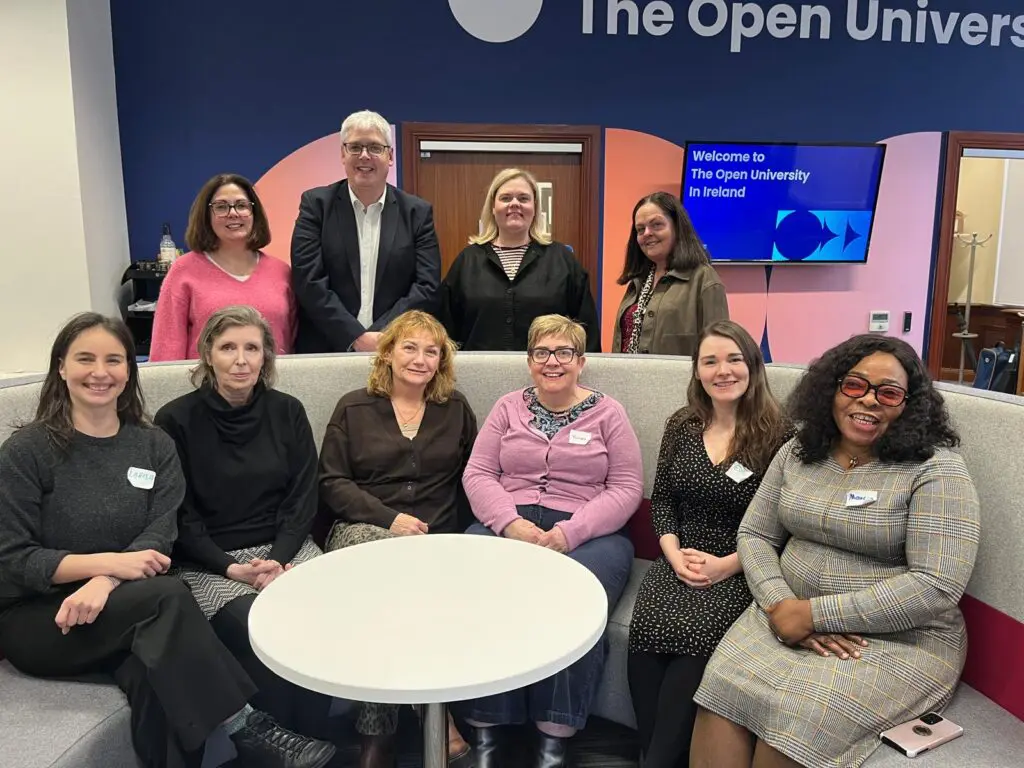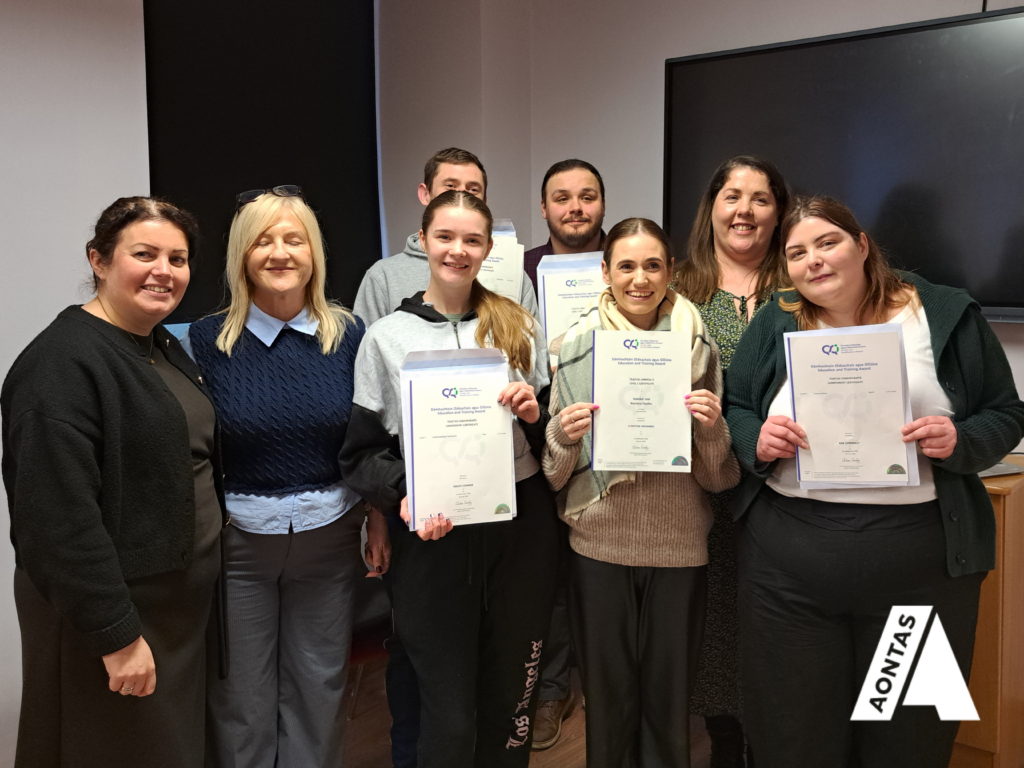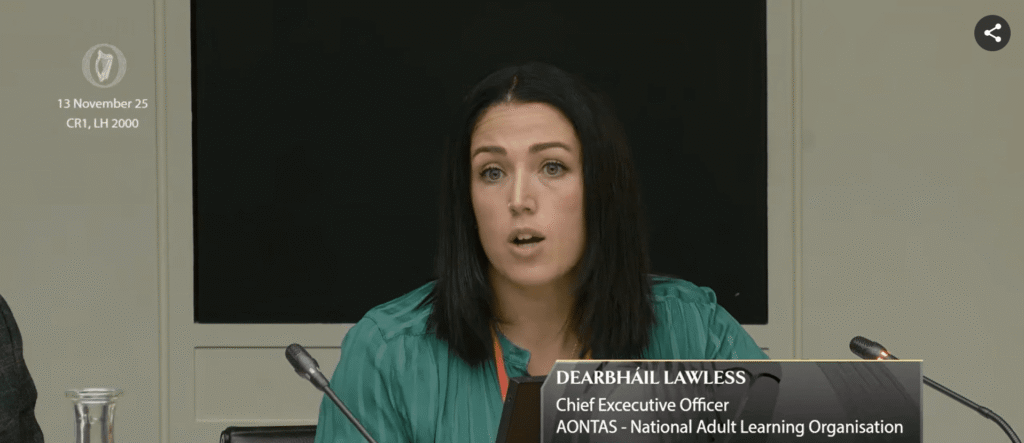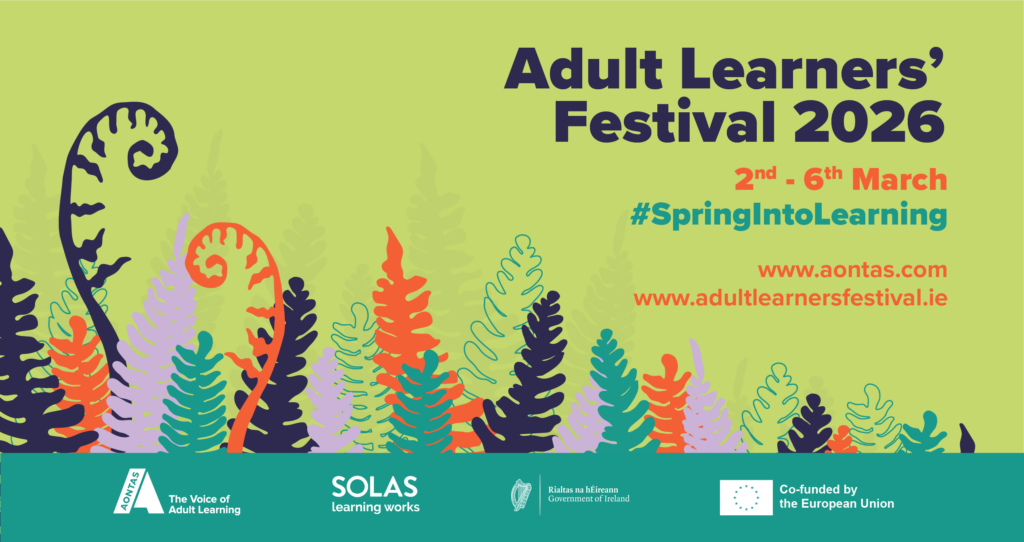Gerry Rogers – Westport Adult Education Centre, Mayo, Sligo and Leitrim ETB
I’m learning computers and working with a tutor on reading and writing to improve my dyslexia. I’ve struggled with it all my life. Spelling doesn’t mean a thing to me. It is just a concept that my brain doesn’t grasp.
When I was six years old, my family immigrated to England in 1960. I was the Irish kid in an English class. My whole education was in England, but I left at 15 because there was no point in carrying on. There was no support and I was considered ‘thick’ because I struggled with reading and writing. I remember one particular teacher saying to me, “you’ve got a good mind, but a lazy brain”. That was how things were in the 60s. It was just a matter of going in there and getting out at the other end.
But subjects like woodwork I loved, as well as discussions and debates. As regards the written word, it terrified me. It still does today. If somebody tells me to write something down, or puts a pen in my hand, I can feel my heart pounding and my hands tighten. After 71 years, it’s still there after all this time: that feeling of panic. Pure panic.
I was diagnosed with dyslexia when I was in my forties. I always had a good idea that there was something wrong — I just couldn’t get the concept of spelling. It’s like a piece missing, like that department is closed to me. I could practise spelling ten words today for two hours and tomorrow, if I pick up my pen, I wouldn’t be able to remember one of them.
I’ve been coming to Westport Adult Education Centre for about a year, working with Clare to see if I can improve my spelling a bit and lower my fear. I found it very good because she understands the situation. When you’re working with somebody that understands where you’re coming from, it makes it a lot easier. There are three or four of us in a group and we’re all pretty similar. We’ve all got a similar background. We had to carry on with work and make a living and feed the kids and all of those things. We didn’t have time for learning.
Because I’m dyslexic, I never could do anything with paperwork. I was in sales, I drove machinery, I had a fencing company, and my wife and I had a café for six years. Anything that was public-facing but didn’t involve writing or spelling.
And then when I retired, I thought that I should use my time to see if I could do anything about it. As luck would have it, one night my wife and I went to the local pub, and Clare and her partner were playing music. During the evening we got chatting and Clare told us that she was a teacher at the college. She told me that she worked with people with dyslexia and told me to pop in. So I took my courage in my hands and went in. With that first step in the door came absolute panic. I could feel my heart pound and I could hardly get a word out. It was like all the old feelings of walking into a classroom. It took me a few weeks to get over the fear but, with Clare and Colette, my tutors, I’ve been totally honest about the situation. I’m not trying to hide anything from them, and they’ve been very good and very helpful.
I found it to be a worthwhile experience because I like to write a bit myself about how I feel. Before, I used to write stuff but I couldn’t ever show it to anybody in case they would laugh about it. At least now I can clean it up on the computer and leave it in a way that, if somebody did find it, at least it makes sense. I’m at a stage now where I’ll even take courage in my hands and reply to my kids’ messages by text rather than ring them. Before I never would do that. I wouldn’t risk embarrassing them as well as myself.
I spent my life hiding the fact that I was dyslexic, avoiding doing paperwork of any kind. It made me adaptable and also quick on my feet: I’d always have an answer ready, or an excuse like forgetting my reading glasses to get out of reading situations.
These days there’s a greater understanding of dyslexia, but because I grew up in a time when there wasn’t, it still stays with me. Two of our children are dyslexic but we picked up on it early and it hasn’t been the same issue for them in their lives or careers. The same with my granddaughter — she’s at university and studies history. It just goes to show you the difference if the support is there from the beginning.
When you’re retired, you suddenly have a lot more time to look at things. In another week I’ll be 50 years married. We have six kids and ten grandchildren and there’s a lot of things to reflect on when you’ve got a bit of time.
I’m trying to find new things to do. I like to do a bit of woodturning. It’s good to keep interested in things and to keep your brain active. I get bored easily. The idea of sitting down watching television or sitting at a bar never interested me.
To me, people are fascinating, thinking about what makes them who they are. If you ask me what makes me who I am — it’s my background. For the first 15 years of my life, I was bullied at school, bullied at home. Then at 18, I had a massive car crash. It made me think about my life and how I wanted to make something out of it. And here I am. I’m quite resilient as well. I’m a problem solver. I take challenges as an opportunity. There’s always a way. You just need to make your imagination bigger.
For me, I believe dyslexics live in the shadows. We shelter ourselves. We never come out in the open. We’re always on the edge. We need to realise that we have a voice. We have a right to stand in the sunlight and it’s OK not to be good at something. We should also learn and take advice from people who find it easy.
I’d like to thank my lovely wife, Anne, for fifty years of answering letters, filling in forms and sending texts to cover my weakness.
Thoughts and Fears – a poem by Gerry Rogers
To run and hide to walk round the edge.
Build walls and listen to what goes on behind them.
Remember each word and bluff that you read
Spelling means nothing, least in my head.
Talking is easy, writing is so hard
To a non-dyslexic the thought is bizarre.
Context so important to remember what was said
To face your shortcomings just plays with your head.
Sets the heart rising and fingers go stiff
Brain in panic get out of here quick.
Build a wall fast and hide behind it.
Grab a coffee, sit down, be calm and face it.
To be a new person leave the old one behind.
Settle the nerves consider the prize.
Just to feel normal like everyone else.
To get out from under this cross weighing me down.
The mountain is high; I will not see the top but every step forward the view will improve.
Progress is slow, progress, is hard, but progress is progress these are the hard yards.
Order my thoughts relax my hands press on with the battle you can make a stand.
